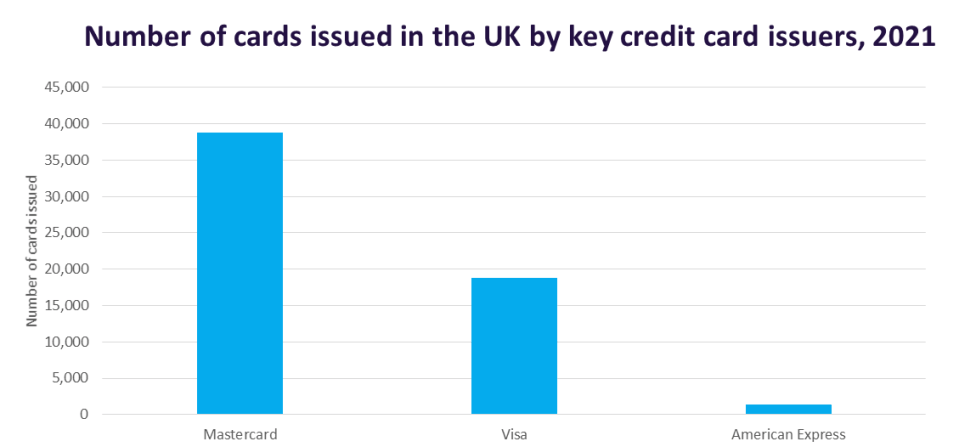Amazon’s merciless move to block Visa likely to lead to rapid uptake of… Amazon credit cards, which are issued by Mastercard

Following the news that Amazon will no longer accept payments from UK-issued Visa credit cards, some industry insiders are convinced the e-commerce giant’s decision is a calculated move to drive the adoption of the company’s own payment cards, and will give a competitive advantage to Visa’s main rival, Mastercard.
Last week, the online retailer confirmed that Visa credit cards issued in the UK will be blocked from use on its site from January 19.
The move sent shockwaves through Britain’s consumer and retail landscape, as the cards of millions of Brits can no longer be used on Amazon’s platform next year. After all, Barclaycard and HSBC are among those using Visa on credit cards.
Visa vs Mastercard
Currently, Visa holds the second largest credit cards market share in the UK, with close to 20 million cards issued in 2021, according to industry figures from Global Data.
Visa falls fairly far behind market leader Mastercard, with around 38m cards.

However, as both companies are looking to increase fees since Brexit took away their 0.3 per cent cap for online cross-border transactions, Amazon’s decision to only ban one of these companies “seems odd,” according to GlobalData payment analyst Chris Dinga, “until you remember that Mastercard is Amazon’s credit card issuing partner.”
Dinga said: “This represents a unique opportunity for both Amazon and Mastercard, as they can take advantage of the situation to promote the Amazon credit card to customers.”
“UK-issued Visa credit card customers will have to either transfer to their debit card or find a new credit card provider if they want to remain an Amazon customer,” he added.
“Amazon is a dominant online retailer who is capable of banning Visa credit cards without risking to loss many customers as they are very dependent on Amazon.”
Analyst Chris Dinga
Amazon’s interference will mean a significant loss of revenue for Visa in the UK. Further, if the issue of interchange fees isn’t addressed, there will be ongoing issue for retailers, which will see their profit margins squeezed, Dinga pointed out.
“Smaller retailers may find it harder to do the same if they try to ban Visa credit cards,” he continued.
Credit cards are still dominant players for non-cash transactions, but they need to be aware of the growing competition that buy now, pay later (BNPL) providers and alternative payments such as Venmo represent.
“BNPL is gradually being adopted by retailers as they see higher conversion and growth opportunity by providing it to their customers. High interchange fees could accelerate the adoption of BNPL services by retailers,” Dinga concluded.
When approached by City A.M., an Amazon spokesman said: “Visa is a service provider to Amazon, not a competitor, and this action is entirely unrelated to our own payment offerings.”